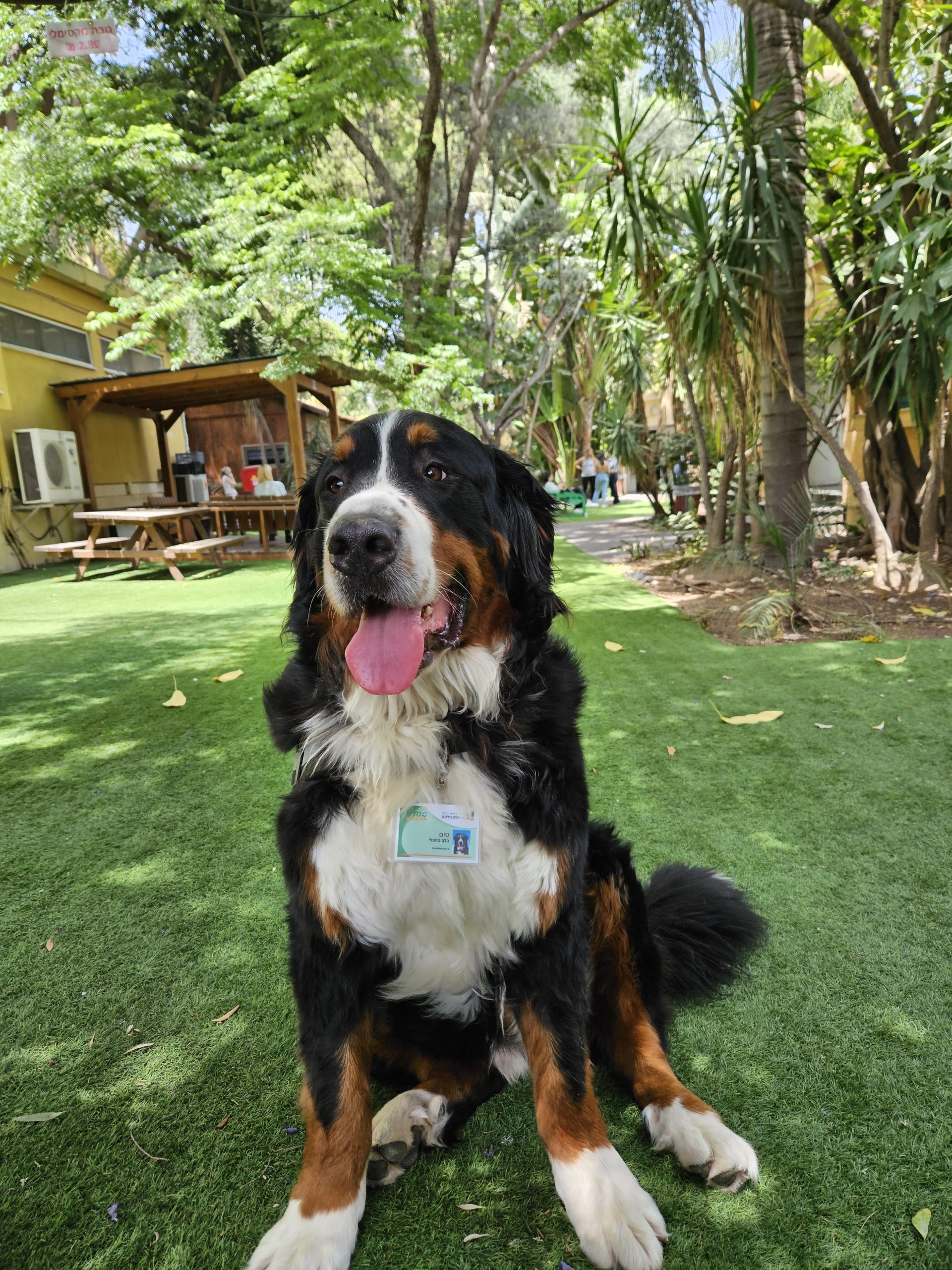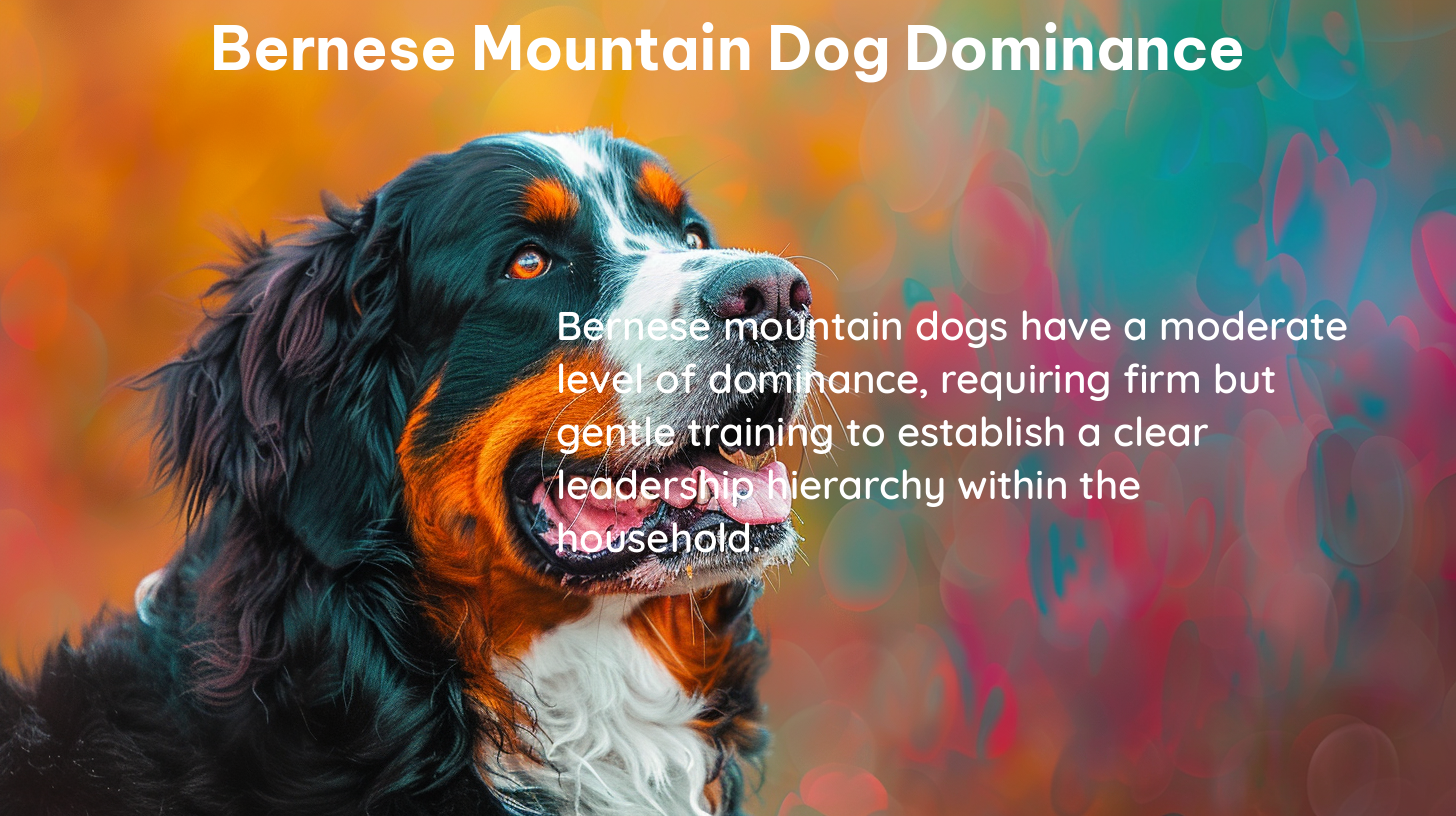Bernese Mountain Dogs are known for their gentle and affectionate nature, but they can also exhibit dominant behaviors if not properly trained and socialized. Understanding the root causes of dominance and implementing effective training strategies are crucial to ensuring your Bernese Mountain Dog remains a loyal and well-behaved companion. In this comprehensive guide, we’ll explore the key factors that contribute to Bernese Mountain Dog dominance and provide practical solutions to address them.
Understanding Bernese Mountain Dog Dominance

Bernese Mountain Dogs are intelligent and strong-willed breeds that can display dominant behaviors if they are not provided with clear leadership and structure. This can manifest in various ways, such as:
- Aggression Towards Other Dogs: Male Bernese Mountain Dogs, in particular, may exhibit aggression towards other male dogs, especially if they have not been properly socialized.
- Refusal to Obey Commands: Dominant Bernese Mountain Dogs may refuse to follow basic commands, such as “sit,” “stay,” or “come,” as they attempt to assert their own will.
- Territorial Behavior: Bernese Mountain Dogs may become overly protective of their home, family, or resources, leading to aggressive behavior towards perceived threats.
- Jumping and Pushing: Dominant Bernese Mountain Dogs may try to assert their dominance by jumping on people or pushing them out of the way.
Addressing the Root Causes of Dominance

To effectively address Bernese Mountain Dog dominance, it’s essential to understand the underlying causes. Here are some of the key factors that can contribute to dominant behaviors:
1. Lack of Socialization and Training
Proper socialization and obedience training are crucial for Bernese Mountain Dogs. Without early exposure to different people, animals, and environments, they may develop fear, anxiety, and a tendency to assert their dominance.
2. Fear and Anxiety
Aggression in Bernese Mountain Dogs often stems from fear and anxiety. If a dog feels threatened or insecure, they may resort to dominant behaviors as a defense mechanism.
3. Lack of Leadership and Structure
Bernese Mountain Dogs thrive when they have a clear leader who provides structure and boundaries. Without this, they may attempt to take on the role of the pack leader, leading to dominant behaviors.
4. Boredom and Lack of Exercise
Bernese Mountain Dogs are large, active breeds that require regular physical and mental stimulation. If they are not provided with enough exercise and enrichment, they may become bored and frustrated, leading to dominant behaviors.
Strategies for Preventing and Addressing Dominance
To prevent and address Bernese Mountain Dog dominance, it’s essential to implement a comprehensive training and socialization plan. Here are some effective strategies:
1. Early Socialization and Obedience Training
Start socializing your Bernese Mountain Dog puppy as early as possible, exposing them to a variety of people, animals, and environments. Enroll them in obedience training classes to teach them basic commands and establish you as the leader.
2. Positive Reinforcement Training
Use positive reinforcement techniques, such as treats, praise, and rewards, to reinforce desired behaviors and discourage dominant behaviors. Avoid punitive methods, as they can exacerbate fear and anxiety.
3. Establishing Leadership and Structure
Clearly establish yourself as the pack leader by consistently enforcing rules and boundaries. Provide your Bernese Mountain Dog with a predictable routine and clear expectations.
4. Addressing Fear and Anxiety
If your Bernese Mountain Dog exhibits aggressive behavior due to fear or anxiety, work with a certified canine behaviorist or trainer to implement a desensitization and counter-conditioning program.
5. Providing Adequate Exercise and Enrichment
Ensure your Bernese Mountain Dog receives regular physical exercise, such as walks, hikes, or playtime, as well as mental stimulation through training, puzzle toys, or other enrichment activities.
6. Consistent Training and Supervision
Maintain a consistent training approach and provide close supervision to reinforce desired behaviors and prevent dominant actions, especially in situations where your Bernese Mountain Dog may feel the need to assert their dominance.
By understanding the root causes of Bernese Mountain Dog dominance and implementing these strategies, you can help your furry friend become a well-behaved and loyal companion.
Recognizing and Addressing Aggressive Behavior
While Bernese Mountain Dogs are generally known for their gentle nature, some individuals may exhibit aggressive behaviors that require immediate attention. Here are some key signs of aggression and how to address them:
Signs of Aggression
- Growling, snarling, or baring teeth
- Stiff body posture and direct eye contact
- Raised hackles (the fur on the back of the neck)
- Snapping or biting
- Lunging or charging towards people or other animals
Addressing Aggressive Behavior
If your Bernese Mountain Dog displays any of these aggressive behaviors, it’s crucial to seek professional help from a certified canine behaviorist or trainer. They can help you identify the underlying causes and develop a customized training plan to address the issue.
Some key steps to address aggressive behavior include:
- Avoid Punishment: Punishing your Bernese Mountain Dog for aggressive behavior can actually worsen the problem by increasing their fear and anxiety.
- Manage the Environment: Identify and remove any triggers that may be causing your dog’s aggressive behavior, such as unfamiliar people or animals.
- Implement Desensitization and Counter-Conditioning: Work with a professional to slowly expose your Bernese Mountain Dog to the triggers in a controlled and positive way, helping them associate the trigger with something positive.
- Reinforce Positive Behaviors: Use positive reinforcement, such as treats and praise, to reward your Bernese Mountain Dog for calm and non-aggressive behaviors.
- Consult a Veterinarian: In some cases, underlying medical conditions or hormonal imbalances may contribute to aggressive behavior, so it’s important to rule out any physical causes.
By addressing aggressive behavior promptly and with the help of a professional, you can help your Bernese Mountain Dog overcome their dominant tendencies and become a well-adjusted, loving companion.
Conclusion
Bernese Mountain Dogs are beloved for their gentle and affectionate nature, but they can also exhibit dominant behaviors if not properly trained and socialized. By understanding the root causes of dominance, such as lack of socialization, fear and anxiety, and boredom, and implementing effective training strategies, you can help your Bernese Mountain Dog become a loyal and well-behaved companion.
Remember, consistency, positive reinforcement, and professional guidance are key to addressing and preventing Bernese Mountain Dog dominance. With the right approach, you can enjoy a strong, loving bond with your furry friend for years to come.
References:
- Canine Perspective. (2020). Bernese Mountain Dog Training Profile. Retrieved from https://canineperspectivechicago.com/bernese-mountain-dog-training-profile/
- Fenrir Canine Leaders. (2020). AGGRESSIVE BERNESE MOUNTAIN DOG TRAINING How To Train Aggressive Bernese Mountain Dog Puppy. Retrieved from https://www.youtube.com/watch?v=Mq18-wBucuw
- bmdinfo.org. (n.d.). Bernese 9 months old-Teenagers Solutions. Retrieved from http://www.bmdinfo.org/bernerpedia/articles/Bernese_9_months_old-Teenagers_Solutions.php
- Angelfire. (n.d.). Aggression in the Bernese Mountain Dog. Retrieved from https://www.angelfire.com/anime3/longlease/article10.htm

Sarah Johnson
Sarah Johnson is a devoted Bernese Mountain Dog enthusiast and regular contributor to Bernese Mountain Dog Pro. With over a decade of experience in raising and training Berners, Sarah brings practical knowledge and passion to her writing. Sarah lives in Colorado with her two Berners, Max and Bella.